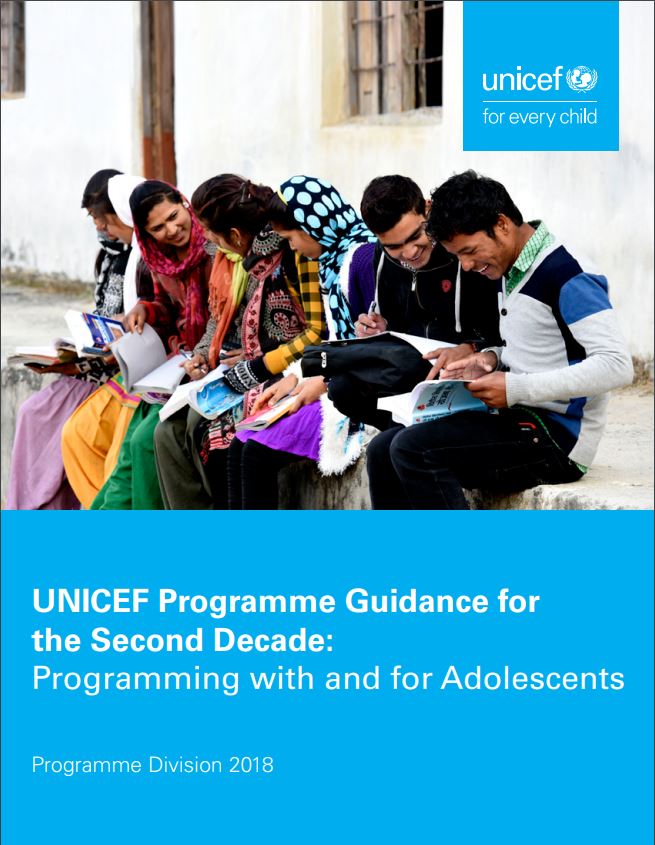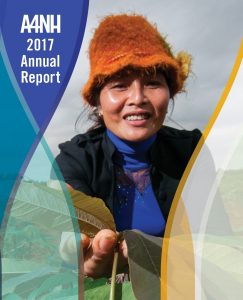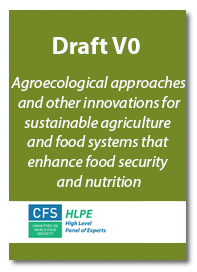Sustainable Food Systems
Adequate nutrition is essential for health and well-being. Every person on this planet has the right to safe, sufficient and nutritious food and to be free from hunger. Yet, undernourished is rampant. Even when food is available and accessible, the nutrient quality of the food is often poor and people’s diets are often inadequate, monotonous and unbalanced. The result is a high prevalence of various forms of malnutrition that co-exist within most countries. Stunting and wasting are underlying causes of death in children under five, micronutrient deficiencies in particular vitamin A, iodine, iron and zinc affect over two billion people, and overweight and obesity have been increasing rapidly worldwide, affecting all population groups.
Aware and concerned about these facts, 164 Members of FAO and WHO attended the Second International Conference on Nutrition (ICN2), co-organized by FAO and WHO, in Rome, in November 2014. They were joined by 164 civil society and private sector organizations as well as other UN and intergovernmental organizations.
According to the High Level Panel of Experts on Food Security and Nutrition, a food system “gathers all the elements (environment, people, inputs, processes, infrastructures, instructions, etc.) and activities that relate to the production, processing, distribution, preparation and consumption of food, and the outputs of these activities, including socio-economic and environmental outcomes.
At the Second International Conference on Nutrition (ICN2), it was universally acknowledged that current food systems are being increasingly challenged to provide adequate, safe, diversified and nutritious food for all that contribute to healthy diets. The Conference adopted the Rome Declaration on Nutrition and its Framework for Action, committing to “enhance sustainable food systems by developing coherent public policies from production to consumption across relevant sectors to provide year-round access to food that meets people’s nutrition needs and promote safe and diversified healthy diet.”
One year later, in September 2015, at the historical global summit, the Sustainable Development Goals (SDGs) were adopted to guide global development through 2030 while ensuring that no one would be left behind. The SDG Goal “to end hunger, achieve food security and improved nutrition, and promote sustainable agriculture” as well as many other SDG goals reiterate and reinforce the commitments made at ICN2. Further building momentum for nutrition, the Decade of Action on Nutrition (2016 to 2025) was proclaimed by the United Nations General Assembly in April 2016, following the recommendation of the ICN2. Its Action Areas focuses on food systems for healthy, sustainable diets. Find out more about the Nutrition Decade here.
The Decade of Action creates an enabling political environment for turning commitments made into action but countries need further technical support in order to do that. FAO and WHO propose to hold an International Symposium on 1-2 December, 2016 to focus mainly on illustrating solutions to implement food systems related ICN2 Framework for Action recommendations. Participants will include government officials with policy-making and programme-design mandates coming from Health and Agriculture ministries.
Latest content relevant to Sustainable Food Systems

eConsultation: Towards a Common Understanding of Sustainable Food Systems
06/12/2018 - Deadline: 13 December 2018 The Sustainable Food Systems Programme of the UN One Planet Network has launched the online consultation Towards a common understanding of Sustainable Food Systems. [...]

Publication launch - Nutrition-sensitive value chains: A guide for project design
03/12/2018 - 3 December 2018, 9.00-10.30 CET at IFAD HQ – Oval Room and via webcast The event will present the Nutrition-sensitive value chains: A guide for project design, a practical guide [...]

Accelerating the end of hunger and malnutrition
28/11/2018 - 28-30 November 2018 - Bangkok, Thailand Improving food security and nutrition is critical to meeting the Sustainable Development Goals (SDGs), but the world is not on track to end hunger and [...]

Call for Contributions: UNSCN Nutrition - Edition 44
14/11/2018 - Open until 10 JANUARY 2019 UNSCN Nutrition is the flagship, peer-reviewed publication of the UNSCN, previously entitled UNSCN News. The 2019 edition will focus on food environments to enable [...]

Policy Brief launch "Preventing nutrient loss & waste across the food system"
07/11/2018 - 7 November 2018, 14:00 – 17:00 (CET), FAO HQ, Rome (Italy) On 7 November 2018, the Global Panel on Agriculture and Food Systems for Nutrition will launch its new policy [...]

UNICEF Programme Guidance for the Second Decade
05/11/2018 - UNICEF Programme Guidance for the Second Decade: Programming with and for Adolescents provides an overview of the strategic direction UNICEF will assume to advance children’s quality of [...]

A4NH 2017 Annual Report
05/11/2018 - The CGIAR Research Program on Agriculture for Nutrition and Health (A4NH) 2017 Annual Report report highlights the program's accomplishments and activities during the first year of its second [...]

eConsultation on the V0 Draft of the HLPE Report
05/10/2018 - The CFS High Level Panel of Experts (HLPE) is now launching an e-consultation to seek inputs, suggestions, and comments on the V0 Draft of the forthcoming HLPE Report on Agroecological [...]

International Forum on Food and Nutrition
28/09/2018 - 28 September 2018, Barnard College - Columbia University, New York City (USA) The global food system faces unprecedented challenges. Today, in the world 815 million people are starving [...]

WUR short course on Food Systems for Healthy and Sustainable diets
17/09/2018 - Wageningen Centre for Development Innovation is facilitating the next round of OKP and MENA fellowship applications (6 September - 16 October 2018) for 15 of its short courses for professionals in the [...]





